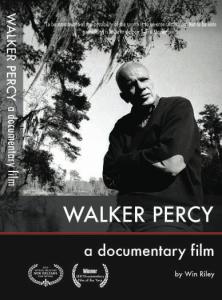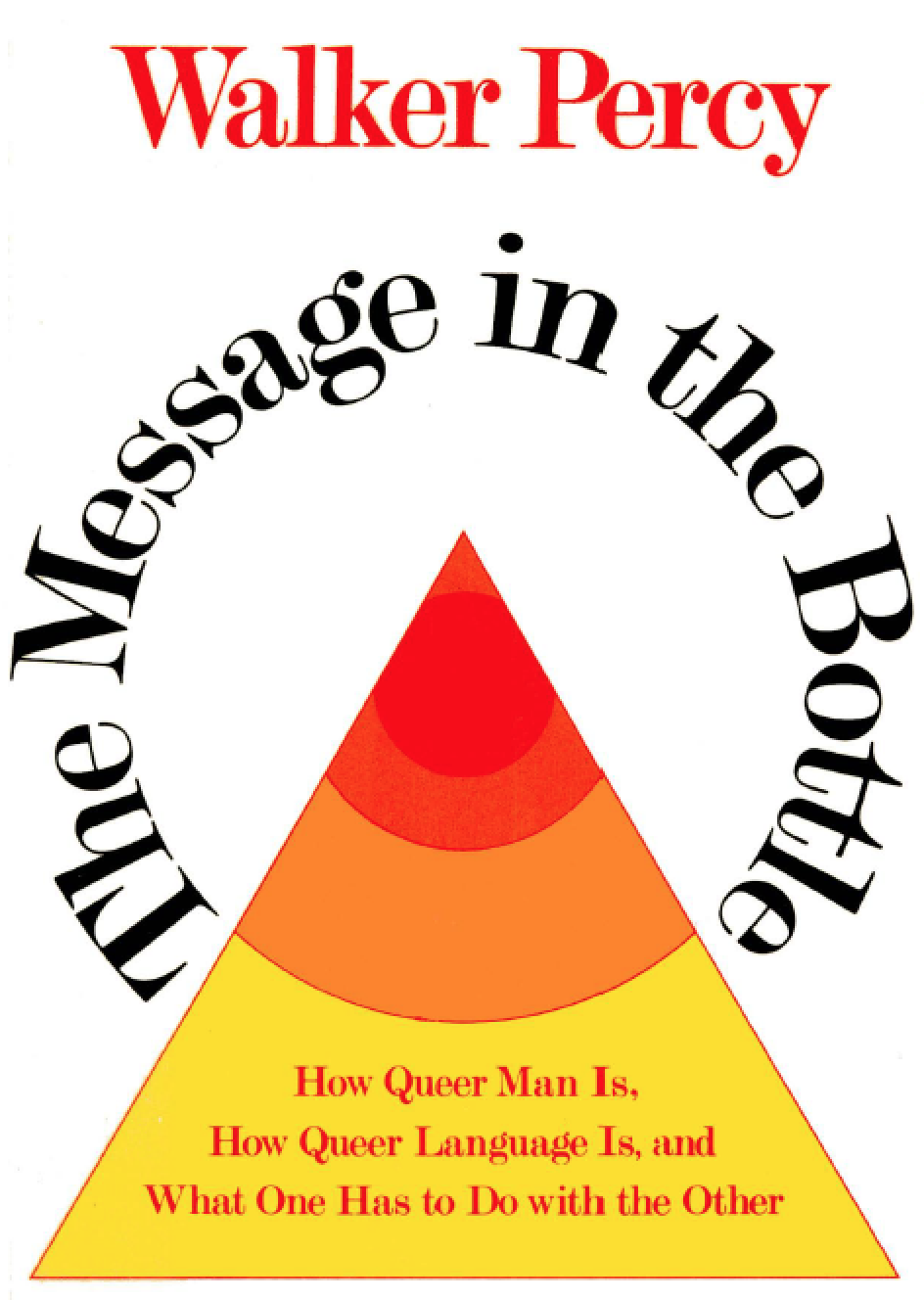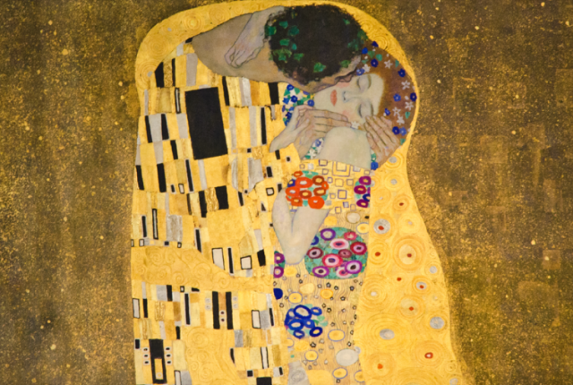
In view of the triumphant and generally admirable democratic-technological transformation of society, what is the ground of the novelist’s radical disquiet? Can the charge be brought against him, as Harvey Cox has accused the existentialists, of being an anachronism, one of the remnant of nineteenth-century “cultivated personalities” who, finding no sympathetic hearing from either technician or consumer, finds it convenient to believe that the world is going to the dogs?
Might not the novelist follow the new theologian in his embrace of the exurb and the computer? Evidently the former does not think so. Offhand I cannot think of a single first-class novelist who has any use for the most “successful” American society, namely life in the prosperous upper-middle-class exurb, in the same sense that Jane Austen celebrated a comparable society. Rather is the novelist more apt to be a refugee from this very society.
The curious fact is that it is the new novelist who judges the world and not the new theologian. It is the novelist who, despite his well-advertised penchant for violence, his fetish of freedom, his sexual adventurism, pronounces anathemas upon the most permissive of societies, which in fact permits him everything. How does the novelist judge the new theologian? One might expect that since one of the major burdens of the American novel since Mark Twain has been a rebellion against Christendom, the emancipated novelist might make common cause with the emancipated theologian. The truth is, or so it appears to me, that neither novelists nor anybody else is much interested in any theologians, and least of all in God-is-dead theologians. The strenuous efforts of the latter to baptize the computer remind one of the liberal clergyman of the last century who used to wait, hat in hand so to speak, outside the scientific laboratories to assure the scientist there was no conflict between science and religion. The latter could not have cared less.
Yet the contemporary novelist is as preoccupied with catastrophe as the orthodox theologian with sin and death.
Why?
Perhaps the novelist, not being a critic, can only reply in the context of his own world view. All issues are ultimately religious, said Toynbee. And so the “religion” of the novelist becomes relevant if he is writing a novel of ultimate concerns. It would not have mattered a great deal if Margaret Mitchell were a Methodist or an atheist. But it does matter what Sartre’s allegiance is, or Camus’s or Flannery O’Connor’s. For what his allegiance is is what he is writing about.
As it happens, I speak in a Christian context. That is to say, I do not conceive it my vocation to preach the Christian faith in a novel, but as it happens, my world view is informed by a certain belief about man’s nature and destiny which cannot fail to be central to any novel I write.
Being a Christian novelist nowadays has certain advantages and disadvantages. Since novels deal with people and people live in time and get into predicaments, it is probably an advantage to subscribe to a world view which is incarnational, historical, and predicamental, rather than, say, Buddhism, which tends to devalue individual persons, things, and happenings. What with the present dislocation of man, it is probably an advantage to see man as by his very nature an exile and wanderer rather than as a behaviorist sees him: as an organism in an environment. Despite Camus’s explicit disavowal of Christianity, his Stranger has blood ties with the wayfarer of Saint Thomas Aquinas and Gabriel Marcel. And if it is true that we are living in eschatological times, times of enormous danger and commensurate hope, of possible end and possible renewal, the prophetic-eschatological character of Christianity is no doubt peculiarly apposite.
It is also true, as we shall presently see, that the Christian novelist suffers special disabilities.
But to return to the question: What does he see in the world which arouses in him the deepest forebodings and at the same time kindles excitement and hope?
What he sees first in the Western world is the massive failure of Christendom itself. But it is a peculiar failure and he is apt to see it quite differently from the scientific humanist, for example, who may quite frankly regard orthodox Christianity as an absurd anachronism. The novelist, to tell the truth, is much more interested in the person of the scientific humanist than in science and religion.
Nor does he set much store by the usual complaint of Christians that the enemies are materialism and atheism and Communism. It is at least an open question whether the world which would follow a total victory of the most vociferous of the anti-Communists would be an improvement over the present world with all its troubles.
No, what the novelist sees, or rather senses, is a certain quality of the postmodern consciousness as he finds it and as he incarnates it in his own characters. What he finds-in himself and in other people-is a new breed of person in whom the potential for catastrophe- and hope-has suddenly escalated. Everyone knows about the awesome new weapons. But what is less apparent is a comparable realignment of energies within the human psyche. The psychical forces presently released in the postmodern consciousness open unlimited possibilities for both destruction and liberation, for an absolute loneliness or a rediscovery of community and reconciliation.
The subject of the postmodern novel is a man who has very nearly come to the end of the line. How very odd it is, when one comes to think of it, that the very moment he arrives at the threshold of his new city, with all its hard-won relief from the sufferings of the past, happens to be the same moment that he runs out of meaning! It is as if he surrenders his ticket, arrives at his destination, and gets off his train-and then must also surrender his passport and become a homeless person! The American novel in past years has treated such themes as persons whose lives are blighted by social evils, or reformers who attack these evils, or perhaps the dislocation of expatriate Americans, or of Southerners living in a region haunted by memories. But the hero of the postmodern novel is a man who has forgotten his bad memories and conquered his present ills and who finds himself in the victorious secular city. His only problem now is to keep from blowing his brains out.
Death-of-God theologians are no doubt speaking the truth when they call attention to the increasing irrelevance of traditional religion. Orthodox theologians claim with equal justification, though with considerably more dreariness, that there is no conflict between Christian doctrine and the scientific method. But to the novelist it looks as if such polemics may be overlooking the tertium quid within which all such confrontations take place, the individual consciousness of postmodern man.
The wrong questions are being asked. The proper question is not whether God has died or been superseded by the urban-political complex. The question is not whether the Good News is no longer relevant, but rather whether it is possible that man is presently undergoing a tempestuous restructuring of his consciousness which does not presently allow him to take account of the Good News. For what has happened is not merely the technological transformation of the world but something psychologically even more portentous. It is the absorption by the layman not of the scientific method but rather of the magical aura of science, whose credentials he accepts for all sectors of reality. Thus in the lay culture of a scientific society nothing is easier than to fall prey to a kind of seduction which sunders one’s very self from itself into an all-transcending “objective” consciousness and a consumer-self with a list of “needs” to be satisfied. It is this monstrous bifurcation of man into angelic and bestial components against which old theologies must be weighed before new theologies are erected. Such a man could not take account of God, the devil, and the angels if they were standing before him, because he has already peopled the universe with his own hierarchies. When the novelist writes of a man “coming to himself” through some such catalyst as catastrophe or ordeal, he may be offering obscure testimony to a gross disorder of consciousness and to the need of recovering oneself as neither angel nor organism but as a wayfaring creature somewhere between.
And so the ultimate question is what is the term or historical outcome of this ongoing schism of the consciousness. Which will be more relevant to the “lost” man of tomorrow who knows he is lost: the new theology of politics or the renewed old theology of Good News? What is most noticeable about the new theology, despite the somber strains of the funeral march, is the triviality of the postmortem proposals. After the polemics, when the old structures are flattened and the debris cleared away, what is served up is small potatoes indeed. What does the Christian do with his God dead and His name erased? It is proposed that he give more time to the political party of his choice or perhaps make a greater effort to be civil to salesladies and shoe clerks. To the “religious” novelist, whether it be Sartre or O’Connor, the positive proposals of the new theology must sound like a set of resolutions passed at the P.T.A.
The man who writes a serious novel about the end of the world-i.e., the passing of one age and the beginning of another must reckon not merely like H. G. Wells with changes in the environment but also with changes in man’s consciousness which may be quite as radical. Will this consciousness be more or less religious? The notion of man graduating from the religious stage to the political is after all an unexamined assumption. It might in fact turn out that the modern era, which is perhaps three hundred years old and has already ended, will be known as the Secular Era, which came to an end with the catastrophes of the twentieth century.
The contrast between the world views of denizens of the old modern world and of the postmodern world might be sketched novelistically.
Imagine two scientists of the old modern world, perhaps a pair of physicists at Los Alamos in the 1940’s. They leave the laboratory one Sunday morning after working all night and walk past a church on their way home. The door is open, and as they pass, they hear a few words of the gospel preached. “Come, follow me,” or something of the sort. How do they respond to the summons? What do they say to each other? What can they do or say? Given the exhilarating climate of the transcending objectivity and comradeship which must have existed at the high tide of physics in the early twentieth century, it is hard to imagine a proposition which would have sounded more irrelevant than this standard sermon preached, one allows, with all the characteristic dreariness and low spirits of Christendom at the same time in history. If indeed the scientists said anything, what they said would not even amount to a rejection of the summons-Come!-a summons which is only relevant to a man in a certain predicament. Can one imagine these scientists conceiving themselves in a predicament other than a Schadenfreude about creating the ultimate weapon? Rather would the words heard at the open door be received as a sample of a certain artifact of culture. Scientist A might say to Scientist B, “Did you know there is a local cult of Penitentes not five miles from here who carry whips and chains in a pre-Lenten procession?” Nor can one blame them for attending such a spectacle in the same spirit with which they attend the corn dance at Tesuque. The fact is that some of the Los Alamos physicists became quite good amateur ethnologists.
Imagine now a third scientist, perhaps a technician, fifty years later. Let us suppose that the world has not even blown up–it is after all too easy to set the stage so that the gospel is preached to a few ragamuffins in the ruins. Rather has it happened that the high culture of twentieth-century physics has long since subsided to a routine mop-up of particle physics-something like a present-day botanist who goes to Antarctica in the hopes of discovering an overlooked lichen. The technician, employed in the Santa Fe-Taos Senior Citizens Compound, is doing routine radiation counts on synthetic cow’s milk. But let us suppose that the schism and isolation of the individual consciousness has also gone on apace so that mankind is presently divided into two classes: the consumer long since anesthetized and lost to himself in the rounds of consumership, and the stranded objectivized consciousness, a ghost of a man who wanders the earth like Ishmael. Unlike the consumer he knows his predicament. He is the despairing man Kierkegaard spoke of, for whom there is hope because he is aware of his despair. He is a caricature of the contemporary Cartesian man who has objectified the world and his body and sets himself over against both like the angel at the gates of Paradise. All creaturely relations crumble at his touch. He has but to utter a word — achieving intersubjectivity, interpersonal relations, meaningful behavior — and that which the word signifies vanishes.
Such a man leaves his laboratory on a workaday Wednesday feeling more disembodied than usual and passes the same church, which is now in ruins, ruined both by the dreariness of the old Christendom and by the nutty reforms of the new theologians. From the ruins a stranger emerges and accosts him. The stranger is himself a weary, flawed man, a wayfarer. He is a priest, say, someone like the whisky priest in Graham Greene’s The Power and the Glory, who has been sent as yet another replacement into hostile territory. The stranger speaks to the technician. “You look unwell, friend.” “Yes,” replies the technician, frowning. “But I will be all right as soon as I get home and take my drug, which is the best of the consciousness-expanding community-simulating self-integrating drugs.” “Come,” says the priest, “and I’ll give you a drug which will integrate your self once and for all.” “What kind of a drug is that?” “Take this drug and you will need no more drugs” Etc.
How the technician responds is beside the point. The point concerns modes of communication. It is possible that a different kind of communication-event occurs in the door of the church than occurred fifty years earlier.

- Share





